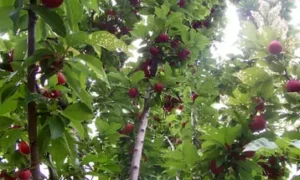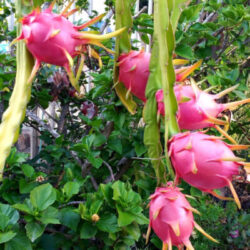
Blueberries are a popular fruit known for their sweet taste and numerous health benefits. In order to cultivate healthy and productive blueberry plants, it is essential to provide them with the right nutrients. Nutrients such as nitrogen, phosphorus, potassium, and various micronutrients play a crucial role in promoting growth, flowering, and fruit development.
One effective way to supply these nutrients to blueberry plants is through the use of fertilizers. There are different types of fertilizers available, including both organic and inorganic options. In this article, we will focus on the use of manure as a fertilizer for blueberries, exploring its composition, benefits, application methods, and potential risks. We will also discuss the comparison between organic and inorganic fertilizers and explore alternative options for blueberry fertilization.
Understanding Manure as a Fertilizer
Manure is an organic fertilizer derived from animal waste. It has been used for centuries to enhance soil fertility and promote plant growth. The composition of manure varies depending on the animal species, diet, and bedding material used. Common sources of manure include cow, horse, chicken, and pig.
Also Read: What is the Best Mulch for Blueberries?
Manure Composition and Nutrient Content
Manure is a rich source of essential plant nutrients. The nutrient content of manure can vary, but it generally contains significant amounts of nitrogen (N), phosphorus (P), potassium (K), and organic matter. These nutrients are essential for blueberry growth and development.
Is manure good for blueberries?
Yes, manure can be beneficial for blueberries. It provides a slow-release source of nutrients, improves soil structure, and stimulates microbial activity, which can enhance blueberry growth and development.
However, it’s important to note that the quality of manure can vary depending on factors such as the diet of the animals and the composting or aging process. It’s best to use well-rotted or aged manure to avoid potential issues with weed seeds or excessive nutrient content.
The Benefits of Using Manure for Blueberries
There are several benefits to using manure as a fertilizer for blueberries:
- Nutrient supply: Manure provides a slow-release source of nutrients, ensuring a steady supply over an extended period. This is particularly beneficial for blueberries, as they have a shallow root system and require a consistent nutrient availability.
- Organic matter improvement: Manure adds organic matter to the soil, improving its structure, moisture retention, and nutrient-holding capacity. This is especially advantageous for blueberries, as they thrive in well-drained, acidic soils with high organic matter content.
- Microbial activity stimulation: Manure contains beneficial microorganisms that can enhance soil microbial activity. These microorganisms aid in nutrient cycling and improve soil health, creating a favorable environment for blueberry growth.
Also Read: is Pine Bark Mulch Good for BlackBerries?
What is the best Manure for Blueberries?
When it comes to choosing the best manure for blueberries, cow manure is often a popular choice. Cow manure has a balanced nutrient composition and is typically readily available. It contains a good balance of nitrogen, phosphorus, and potassium, which are essential for blueberry plants.
Choosing the Right Type of Manure for Blueberries
When selecting manure for blueberries, it is important to consider the nutrient composition and the pH of the manure. Blueberries prefer acidic soils, so manure with a lower pH is preferable. Additionally, the nutrient content of the manure should be balanced to meet the specific needs of blueberry plants. Conducting soil tests and consulting with local agricultural extension services can help determine the appropriate manure type and application rates for your blueberry plants.
Applying Manure to Blueberry Plants
Manure can be applied to blueberry plants through several methods:
- Surface application: Spread a layer of well-rotted manure around the base of the plants, taking care to avoid direct contact with the stems. This method allows for gradual nutrient release as rain and irrigation water leach the nutrients into the soil.
- Incorporation into soil: Before planting or during the spring, mix well-rotted manure into the top layer of soil. This helps ensure a uniform distribution of nutrients and organic matter.
- Compost tea or liquid manure: Manure can be steeped in water to create a nutrient-rich liquid fertilizer. This can be applied to blueberry plants as a foliar spray or soil drench.
Also Read: Best Mulch for BlackBerries Plant
Is cow manure good for blueberries
In addition to cow manure, other types of manure such as horse, chicken, and pig can also be beneficial for blueberries, as long as they are properly composted or aged. The specific nutrient content may vary among these manures, so it’s a good idea to have your soil tested and consult with local agricultural extension services to determine the best type and application rates for your blueberry plants.







